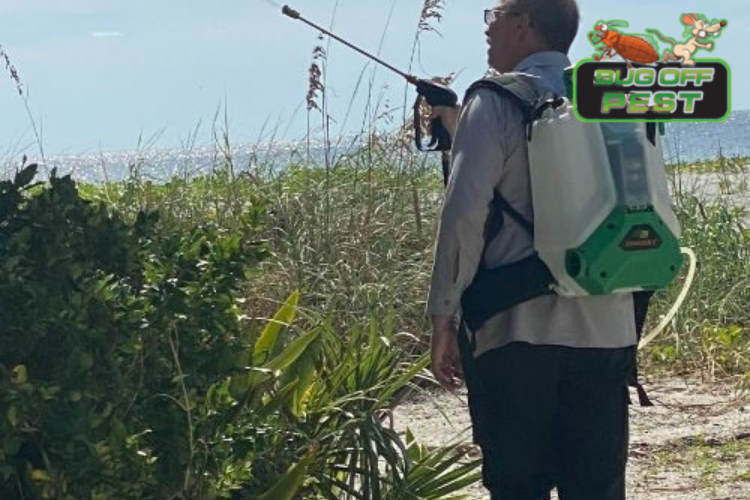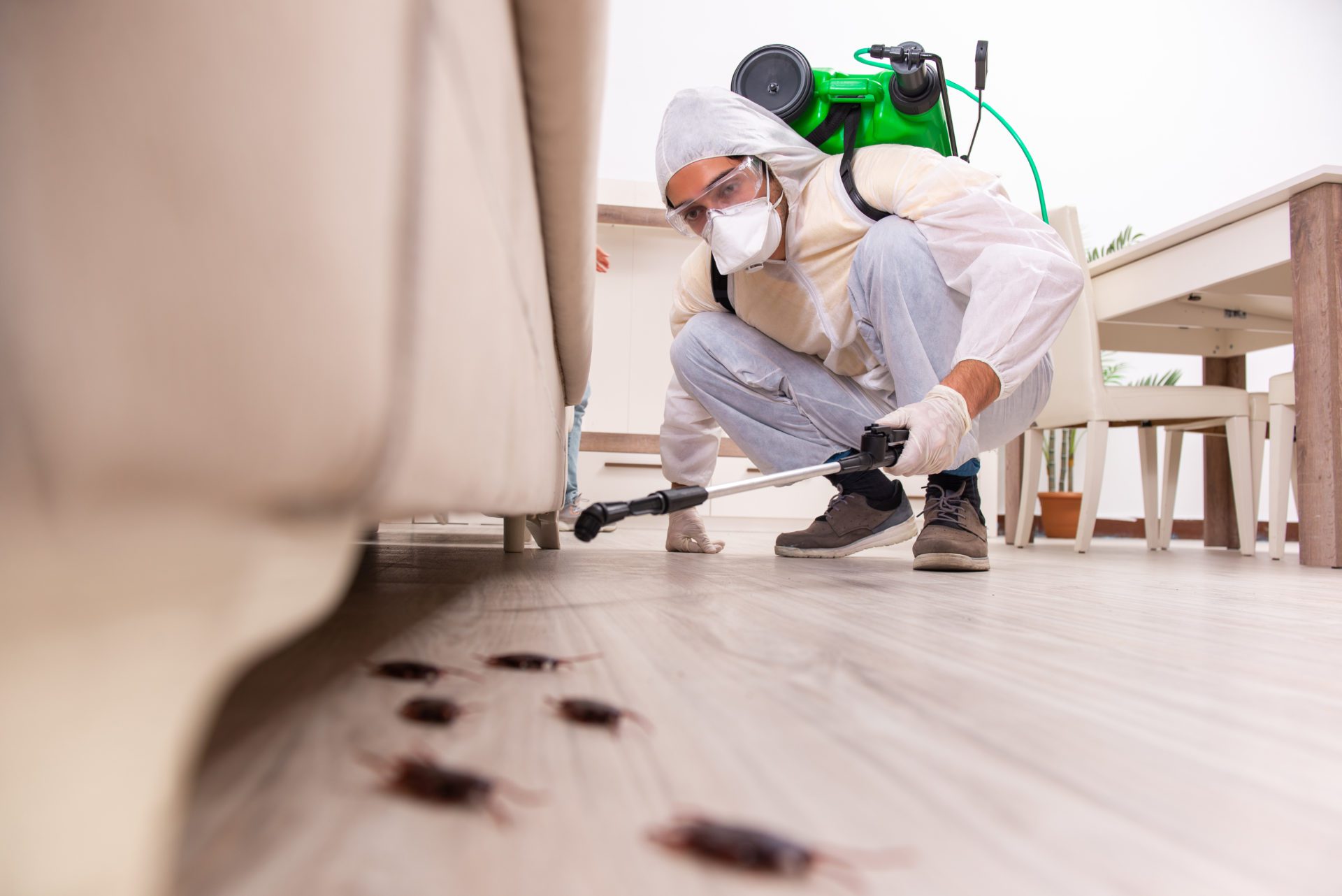Pet-Safe Port Charlotte Pest Control Service
Reveal the Significance of Parasite Control in Preserving a Healthy And Balanced Environment and Treatment Methods
Pest control plays a crucial duty in guarding not just human health and wellness however also the delicate equilibrium of our communities. As we explore the effects of bug control methods, it ends up being important to think about both the prompt benefits and the long-lasting sustainability of our environment.
The Duty of Insects in Ecosystems
Pests, usually checked out solely as nuisances, play a complex function in environments that is essential for keeping eco-friendly balance. They contribute significantly to numerous environmental procedures, consisting of pollination, nutrient cycling, and pest control. For example, many insect species, such as and butterflies, are necessary pollinators for a wide variety of plants, which in turn supports biodiversity and food production.
Furthermore, pests act as victim for many predators, developing a vital link in food webs. This connection guarantees the survival of numerous types and aids manage populations within communities. Decomposer insects, such as specific beetles and fungis, are critical in damaging down natural matter, therefore enhancing dirt and helping with nutrition recycling.
Conversely, while pests can be valuable, their overpopulation or intrusion into non-native environments might disrupt these eco-friendly features. This complexity emphasizes the significance of understanding parasite characteristics, as efficient parasite management techniques must consider both their ecological roles and potential effect on human activities. Stabilizing pest existence while decreasing harm is essential for preserving the integrity of ecological communities and ensuring farming performance.
Health And Wellness Threats Connected With Insects

The existence of bugs in various settings expands beyond their ecological functions, as they also posture significant health and wellness risks to humans and animals. Many parasites, consisting of rodents, bugs, and parasites, are providers of diseases that can have major health implications. For example, rodents are recognized to transmit hantavirus and leptospirosis, both of which can lead to serious breathing and kidney concerns, respectively.
Pests such as mosquitoes and ticks are notorious for spreading vector-borne diseases like malaria, dengue fever, and Lyme condition. These diseases can cause high morbidity and death rates, especially in prone populations. Additionally, insects like cockroaches and vermins can exacerbate allergies and asthma, adding to respiratory system problems in people, specifically those with pre-existing problems.
In addition, the presence of pests can cause emotional anxiety and discomfort, influencing general health. Contamination of food and surface areas by pest droppings and remains can cause foodborne ailments, highlighting the significance of preserving sanitary problems - Pest Control in Port Charlotte, FL. Therefore, recognizing the wellness threats related to pests is vital in recognizing the need of efficient parasite monitoring approaches to secure human and animal health and wellness.
Advantages of Reliable Parasite Control
Efficient parasite control is important for preserving a healthy and redirected here balanced and secure environment, as it regularly minimizes the countless risks linked with bug problems. One of the primary benefits of reliable insect monitoring is the reduction of health and wellness threats.

Another significant benefit is the improvement of total lifestyle. A pest-free atmosphere adds to mental health and lowers stress and anxiety associated with infestations. Furthermore, efficient bug control cultivates a much safer atmosphere for children and animals, ensuring that homes stay refuges without harmful chemicals and disease-causing microorganisms.
Typical Bug Control Methods
In the realm of insect administration, various strategies are employed to combat problems efficiently. These strategies can be broadly categorized into three main methods: cultural, mechanical, and chemical controls.
Social control entails modifying practices to minimize insect facility, reproduction, and survival. This might consist of plant rotation, proper hygiene, and environment adjustment, which collectively create an environment less for pest proliferation.
Mechanical control employs physical approaches to remove parasites. Strategies such as catches, barriers, and vacuum cleaners are generally utilized to straight remove pests from a location. This technique is particularly effective for taking care of rodents and insects without using hazardous chemicals.
Chemical control includes the application of chemicals to handle pests. These compounds can be categorized right into pesticides, herbicides, and fungicides, each targeting certain sorts of parasites. It is important to utilize these chemicals sensibly, sticking to security standards and policies to minimize possible damage to non-target species and the atmosphere.
Each insect control technique has its advantages and restrictions, and frequently, an integrated method combining numerous techniques produces the very best cause keeping a pest-free atmosphere.
Lasting Parasite Monitoring Practices

Integrated Parasite Management (IPM) is a cornerstone of sustainable techniques, incorporating biological, social, mechanical, and chemical techniques to handle pests. As an example, organic control involves introducing all-natural predators or bloodsuckers to reduce parasite populations. Social techniques, such as crop rotation and polyculture, disrupt pest life cycles and enhance community resilience.
Mechanical techniques, such as traps or obstacles, can effectively stop bug accessibility without chemical treatment (Pest Control best site in Port Charlotte, FL). In addition, keeping healthy environments through correct soil management, plant health, and biodiversity can naturally mitigate insect concerns
Education and understanding are crucial parts, encouraging people and areas to recognize bug threats early and apply preventative actions. By fostering a holistic strategy that stabilizes insect control with eco-friendly stability, sustainable bug management methods not only shield crops and structures but additionally contribute to a much healthier environment for future generations.
Conclusion
Efficient pest control is essential for safeguarding public health and wellness and preserving eco-friendly balance. By recognizing the function of insects, acknowledging affiliated wellness threats, and utilizing diverse therapy strategies, a lasting technique to pest monitoring can be achieved. Integrated Bug Administration (IPM) highlights an alternative approach that reduces damage to advantageous microorganisms while effectively regulating pest populations - Pest Control in Port Charlotte, FL. Eventually, liable bug management promotes a healthier setting, advertising both human well-being and the integrity of ecological communities.